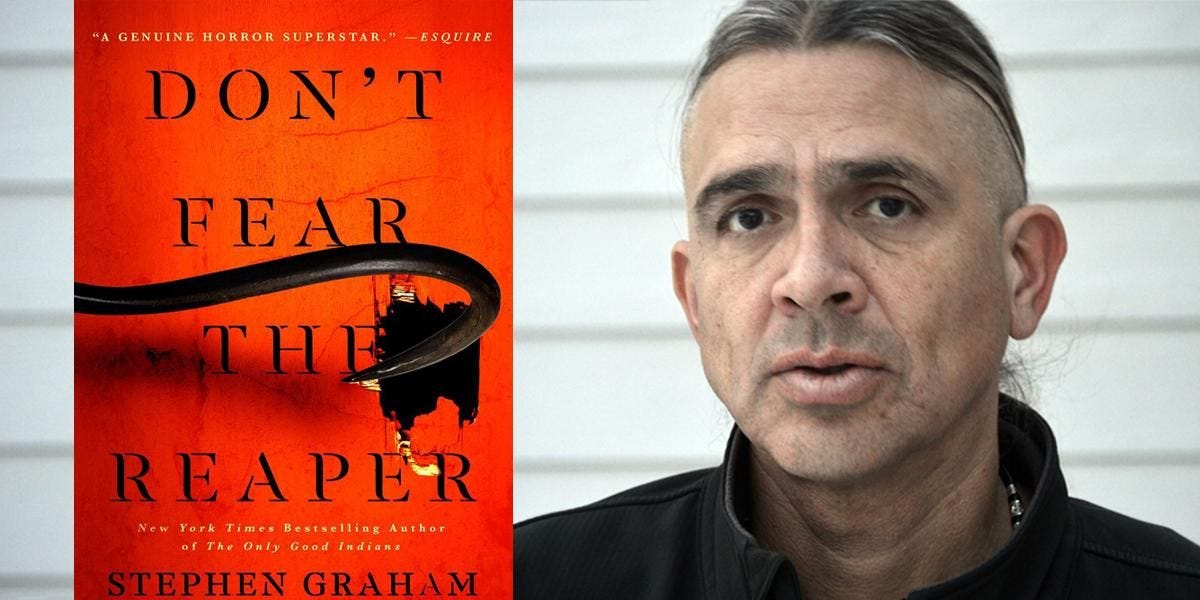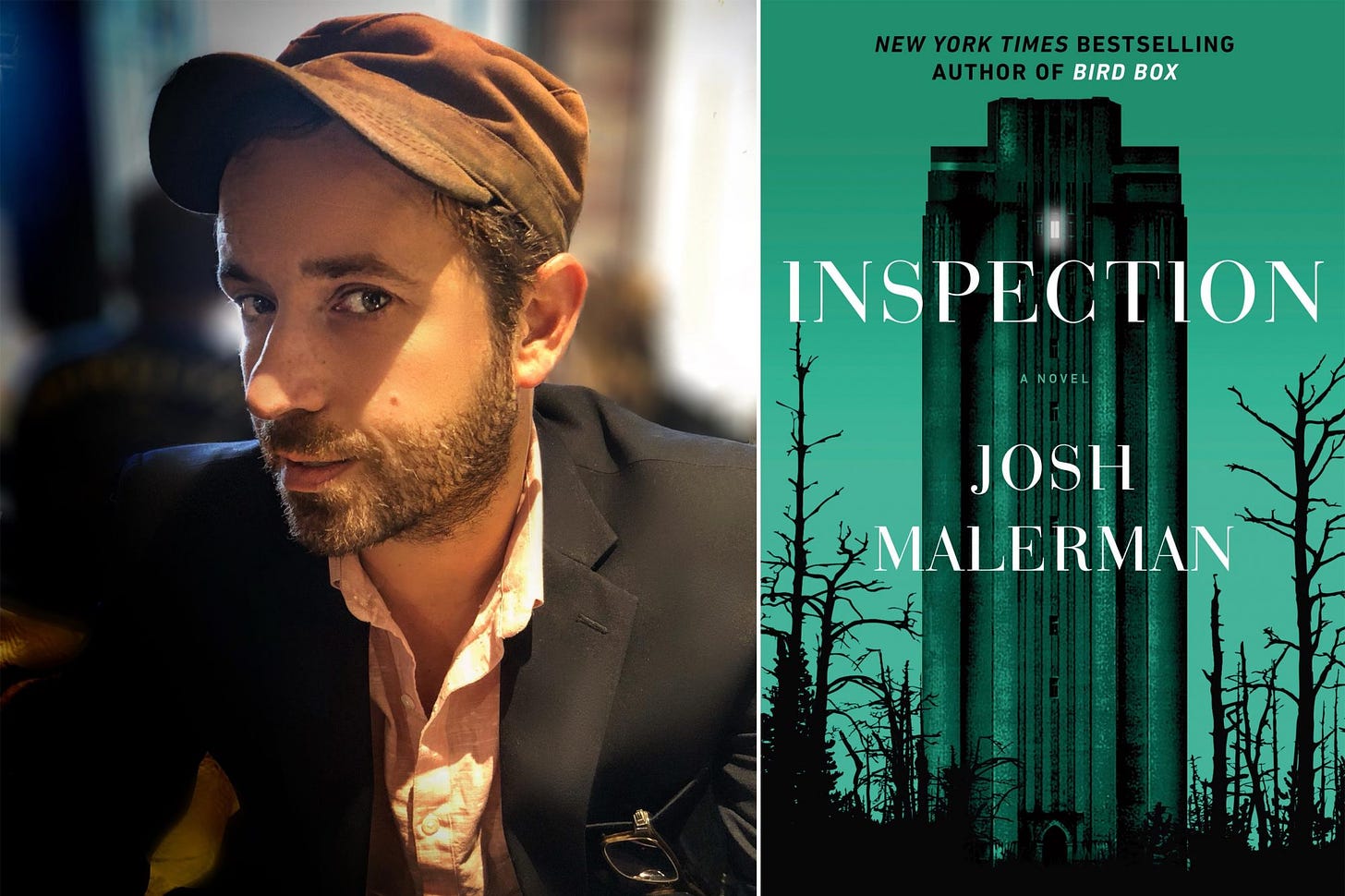My Week In Reading
Half-finished novels, George Saunders, short stories, and some Substacks
For any new subscribers, this is Binge, the section of my newsletter where I talk about my reading list, my current story obsessions, my Netflix addictions. Please chime in. Give recommendations. Let’s love on the writers of the world. Happy Friday!
The unfocused reader.
I have been on a serious book buying binge. For years I stuck to buying books online in all their formats-ebooks, audiobooks, paper and hardbacks. But in the last three months, I’ve gone hog wild. I can’t seem to stop. But now that I’ve reached June, something has been nagging at me.
I glanced at my nightstand last weekend and counted 15 books, no exaggeration, stacked and waiting for me. Two more were in my backpack—the thing I use as a purse because books and journals don’t fit in most purses—both started and unfinished. Two more sat on an end table next to my couch, the result of a recent work trip that brought me wandering into the airport book stores.
Then I have two audiobooks waiting in queue on Audible, a dozen ebooks unread on my Kindle. I am literally rich in stories right now. The problem is I’m greedy, and there’s already more I want. More books. More stories. More poems and perspectives and hurting and laughing. I want it all. So, to justify any future purchases, I’ve been reading more. Here’s how this week went.
Don’t Fear the Reaper

I started this months ago. It was the subject of a lucky Vegas airport find (I found it buried beneath magazines, the last copy on the shelf) some time in March. It’s the second in a horror/slasher trilogy by Stephen Graham Jones. The first, My Heart is a Chainsaw, was a wonderfully quick read, and my initial introduction to his writing.
He is a horror fiend, a fan from childhood, and an extremely creative writer. His prose is sometimes difficult to follow, written in the style of dialogue. Even the character’s thoughts are dialectic, similar to how we really think, but unusual to read and follow in a book. I listened to The Only Good Indians, another work of his and my personal favorite, and I didn’t notice any difficulty. But reading it took time—I had to fall into that dialectical style.
The story follows the strange Jade Daniels, a native girl who grew up in the small town of Proofrock, Idaho. She returns after a prison stint, serving time while awaiting trial for murder, four years after the Independence Day Massacre. When her conviction is overturned, she has nowhere to go but home, to the town she saved with no thanks in return.
But Christmas is going to be different this year. A notorious serial killer, the towering native Dark Mill South, has escaped in the midst of a prison transfer, and the body count is rising. It’s up to Jade and Letha Mondragon to save as many people as they can, and not get killed in the process. Once again, it’s up to the final girl to stop the cycle of murder.
Thursday, by George Saunders
I haven’t read any George Saunders. I think that may be some kind of literary crime, but alas, here I am in confession to all of you. So when I saw that he had a new story in The New Yorker, I decided to listen. And I was floored.
Listening to it, I experienced the wonderful floating feeling of living two lives, my own in my body, and his character’s in my mind. That flow state, the complete absorption, is the highest reading experience. The analytical mind slipped to the side, replaced by experiential knowledge, the world of touch and smell and taste, all from words on a page.
If you have an hour, give it a listen here.
Inspection, by Josh Malerman

Again, a random pick. I didn’t realize that Malerman was the author of Bird Box. I’ve never read the book but I loved the movie with Sandra Bullock, and now that I’ve read this novel, I’m definitely going to—you guessed it—buy it. Put it on my nightstand. Impale myself with my ever growing stack of stories.
The story follows two groups of twelve-year-olds, the Alphabet Boys and the Letter Girls. Children born and raised completely unaware of one another, separated by towers, the subject of a long experiment to raise super-children. Obsessed with removing “distractions,” The Parenthood raises the children isolated, alone in a world of math and studies, institutionalized and unaware of reality. The goal? The next incredible writers, artists, scientists, engineers.
In the tradition of other classic dystopian works (think 1984), Inspection follows the main characters from their world of silly naivety, into the darker discoveries of the true nature of The Parenthood. Well written, fascinating, and a stark speculative imagining of the cost of human optimization, even in miniature.
Another from Joe Hill’s 20th Century Ghosts
This week’s short story from Joe Hill’s breakout collection pricked me, injected my mind with the uncanny. It really scared me. I had to stop reading it in bed one night, couldn’t move the imagery forward into my dreams. I loved it.
This one, was Abraham’s Boys.
“He’s pretty strict about havin you two boys in before dark, isn’t he?”
“Yes, ma’am,” he said.
“There’s plenty like him,” she said. “They brung the old country over with them. Although I would have thought a doctor wouldn’t be so superstitious. Educated and all.”
Max suppressed a shudder of revulsion. Saying that his father was superstitious was an understatement of grotesquely funny proportions.
-Joe Hill, Abraham’s Boys, from 20th Century Ghosts
Max and Rudy live with their father, a Dutch immigrant who left Europe after an unknown controversy. He’s done something bad, but Max isn’t sure what. Now, they live within the strict confines of their country home, never staying out after dark, for fear of them. A disturbing tale of family secrets, insanity and superstition, and brotherly love with a surprising twist. It deserves a read from any horror lover out there.
I’ve been reading a lot of new Substacks as well, thanks to the Notes feature. A couple that stuck with me lately:
A memoir piece by Buck Weiss of It’s the Devil!1
This was a bittersweet story of parental love, addiction, and the loss of childhood. It really highlighted how complicated all of our relationships are, layers on layers, but in the end, I think the love shines through.
Some thoughts on dying, by Sam Kahn of Castalia.
I’ve been thinking about death quite a bit lately, and was happy to read the more stoic acceptance exhibited in Tibetan culture. Despite my best efforts, I’m still trying to escape the inevitable, buying anti-wrinkle serums with the best of them (or the worst?), but in the end I know what this all leads to.
Sam’s writing is really thought provoking, eclectic, and strong. If you haven’t explored his work, please give it a read. You might love it.
And this piece by Nathan Slake of SLAKE.
His newsletter drips whimsy (he’s a sci-fi guy), and it was a lovely melancholy read after a long day of work. I like the delicacy of his writing. I have yet to dive into his stories, but now that I’ve read his blurb, I can’t wait.
That’s it for me. I hope you all got to read a little too. If you did, let me know what you liked. What spoke to you? And if you’ve read any of the above mentioned, how did you like them? Cheers!
Am I doing the right thing here with the italics? Or should a newsletter be in quotes? Help me out English majors.








Solid recommendation 👍👍👍
I love Stephen Graham Jones! I’ve bought many a horror anthology just to read his contribution.